Introduction
What Do Rabbits Eat In The Wild: Rabbits are small mammals that are found in various parts of the world. They are known for their soft fur, long ears, and quick movements. While many people keep rabbits as pets, it is important to understand what they eat in the wild to ensure their proper care and nutrition.
In the wild, rabbits are herbivores, which means they primarily eat plants. Their diet consists mainly of grasses, leaves, and twigs. They have a unique digestive system that allows them to extract nutrients from these fibrous materials. Rabbits also have a special adaptation called hindgut fermentation, which helps them break down tough plant materials.
Grasses are a major part of a wild rabbit’s diet. They consume a variety of grasses, including meadow grass, ryegrass, and fescue. These grasses provide rabbits with essential nutrients such as fiber, protein, and carbohydrates. Rabbits are known to graze on grass for several hours a day, using their sharp incisors to cut the blades.
Leaves are another important component of a wild rabbit’s diet. They consume animal grass wide range of leaves from different plants, including dandelion leaves, clover leaves, and plantain leaves. Leaves are rich in vitamins and minerals, which are essential for the rabbit’s overall health and well-being.
In addition to grasses and leaves, twigs also form a significant part of a wild rabbit’s diet. They chew on twigs to wear down their continuously growing teeth. Twigs also provide rabbits with additional fiber and nutrients. Common twigs consumed by wild rabbits include those from willow, birch, and apple trees.
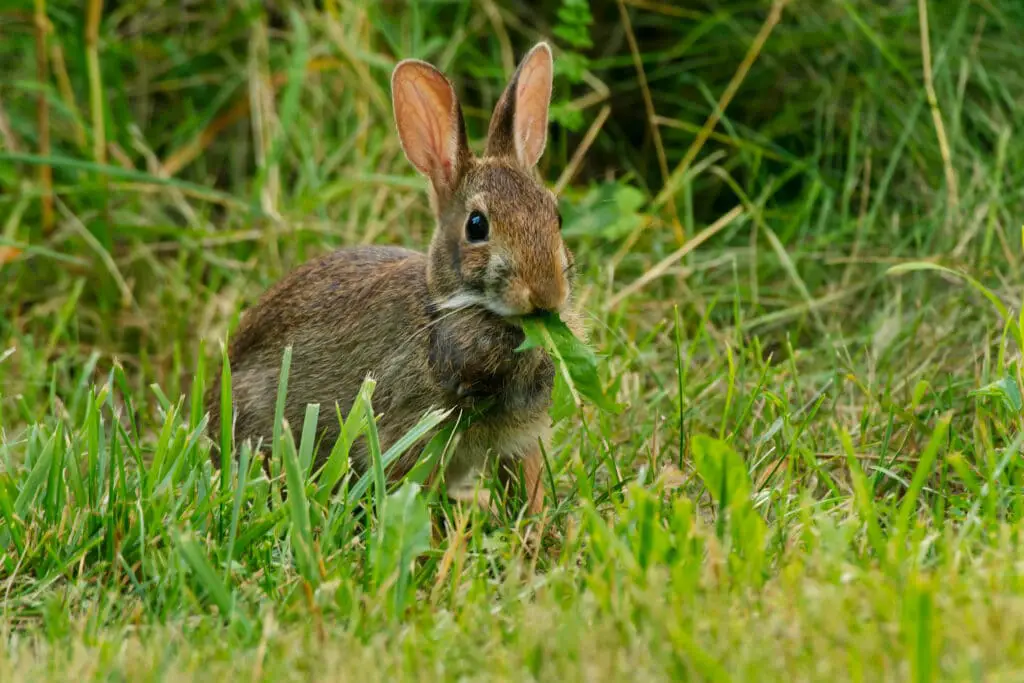
Do wild rabbits eat carrots?
There are many misconceptions about what rabbits should eat, including the myths that rabbits need lots of carrots and lettuce, as well as regular portions of commercial food. In fact, while carrots are fine as an occasional treat, rabbits don’t actually eat fruit or vegetables in the wild.
Wild rabbits are known for their voracious appetite and ability to forage for food in their natural habitats. However, the question of whether or not they eat carrots is a common one. Carrots are often associated with rabbits, thanks to popular culture and children’s stories. But do wild rabbits actually eat carrots?
The short answer is yes, wild rabbits can eat carrots. Carrots are a nutritious vegetable that can provide rabbits with essential vitamins and minerals. In the wild, rabbits primarily feed on grass, leaves, and other plant materials. However, they are opportunistic eaters and will consume a variety of foods if they are available.
It’s important to note that while wild rabbits can eat carrots, they should not be the main component of their diet. Carrots are high in sugar and should be given to rabbits in moderation. Feeding rabbits too many carrots can lead to digestive issues and obesity. It’s best to offer carrots as an occasional treat rather than a staple food source.
When it comes to feeding wild rabbits, it’s important to mimic their natural diet as closely as possible. This means providing them with a variety of fresh greens, hay, and other plant materials. Carrots can be offered as part of this varied diet, but they should not be the sole focus.
While wild rabbits can eat carrots, they should be given in moderation and as part of a balanced diet. It’s important to remember that wild rabbits have specific dietary needs and should be provided with a range of foods that mimic their natural habitat. By offering a diverse diet, you can help ensure the health and well-being of wild rabbits in your area.
What are 5 things rabbits eat?
Rabbits require a balanced diet of hay, fresh veggies and fruit, and a few pellets. However, it’s important to note that rabbits have sensitive digestive tracts, so the transition to hay or pellets — or the introduction of new fruits and vegetables — must be done gradually to allow their system to adjust.
Rabbits are herbivorous animals and have a diverse diet that consists mainly of plant material. They have a unique digestive system that allows them to efficiently extract nutrients from fibrous plant material. Here are five things that rabbits commonly eat:
1. Hay: Hay is an essential part of a rabbit’s diet. It provides the necessary fiber that helps maintain a healthy digestive system. Timothy hay is the most commonly recommended type of hay for rabbits, but other varieties such as orchard grass or oat hay can also be included.
2. Fresh Vegetables: Rabbits enjoy a variety of fresh vegetables as part of their diet. Leafy greens like kale, spinach, and romaine lettuce are excellent choices. Other vegetables such as carrots, bell peppers, and broccoli can also be given in moderation.
3. Pellets: Rabbit pellets are specially formulated to provide the necessary nutrients for rabbits. They should be high in fiber and low in protein and fat. Pellets should be given in limited quantities to prevent obesity and other health issues.
4. Fresh Fruits: While fruits should be given sparingly due to their high sugar content, they can be a tasty treat for rabbits. Apples, strawberries, and blueberries are some examples of fruits that rabbits can enjoy in small amounts.
5. Fresh Water: Water is essential for rabbits to stay hydrated and maintain proper bodily functions. Fresh, clean water should always be available for rabbits to drink. It is important to regularly check and refill their water source to ensure they have an adequate supply.
What do wild rabbits drink?
Wild rabbits obtain a lot of water from the greens, veggies, and fruits they ingest throughout the day. But, they will still search out and drink fresh water.
Wild rabbits primarily drink water to stay hydrated. Water is essential for their survival as it helps regulate their body temperature, aids in digestion, and supports overall bodily functions. However, the sources of water for wild rabbits can vary depending on their habitat and availability.
In their natural habitats, wild rabbits typically obtain water from various sources such as rivers, streams, ponds, and other bodies of water. They may also drink from rainwater puddles or dew on plants. These natural water sources provide rabbits with the necessary hydration they need to thrive in the wild.
Additionally, wild rabbits can obtain water from the food they consume. Their diet consists mainly of grasses, herbs, and other plant materials, which naturally contain moisture. This helps supplement their water intake, especially during periods when other water sources may be scarce.
It is important to note that wild rabbits have evolved to obtain most of their water requirements from their diet. This adaptation allows them to survive in arid environments where water sources may be limited. However, they still need access to fresh water to maintain optimal health and hydration.
When wild rabbits are kept in captivity or as pets, it is crucial to provide them with a constant supply of fresh, clean water. This can be done through water bottles or bowls placed in their enclosures. It is recommended to use water bottles to prevent contamination and ensure that the rabbits have easy access to water at all times.
What meat do wild rabbits eat?
This means that they only eat material that comes from plants: things like grasses, seeds, fruits and vegetables. Since rabbits have evolved to be herbivorous, they do not eat anything that comes from animals, such as meat or eggs.
Wild rabbits are herbivores, which means they primarily eat plants. However, their diet can vary depending on the availability of food in their natural habitat. In general, wild rabbits consume a variety of grasses, leaves, and other vegetation. They are known to feed on a wide range of plants, including clover, dandelions, plantain, and various types of weeds.
Grasses: Grasses make up a significant portion of a wild rabbit’s diet. They are high in fiber and provide essential nutrients for the rabbit’s digestive system. Wild rabbits will graze on different types of grasses, such as ryegrass, fescue, and timothy grass.
Leaves: Wild rabbits also eat leaves from various plants. They may consume the leaves of trees, shrubs, and even certain herbs. Leaves provide additional nutrients and moisture for the rabbits. Some common plants whose leaves are consumed by wild rabbits include blackberry bushes, raspberry plants, and willow trees.
Vegetation: Wild rabbits have a diverse diet when it comes to vegetation. They will eat a variety of plants, including flowers, buds, and stems. They may nibble on the flowers of daisies, marigolds, and violets. Additionally, they may consume the buds and stems of plants like roses and hibiscus.
Seasonal Variations: The diet of wild rabbits can change throughout the year, depending on the availability of food. During the spring and summer months, when vegetation is abundant, they have a wider range of food options. In contrast, during the winter months, when food is scarce, they may rely more on bark, twigs, and even the occasional tree sap.
What is a rabbit’s favorite food?
Rabbits love vegetables and they are good for them. Stay away from potatoes, beans, nuts, seeds, and corn to avoid digestive problems.
A rabbit’s favorite food can vary depending on their individual preferences and dietary needs. However, there are certain foods that are commonly enjoyed by rabbits and can be considered their favorites.
Hay is an essential part of a rabbit’s diet and is often considered their favorite food. It provides necessary fiber and helps maintain healthy digestion. Rabbits enjoy nibbling on fresh, high-quality hay such as timothy, orchard grass, or oat hay.
Fresh vegetables are another favorite food of rabbits. Leafy greens like kale, spinach, and romaine lettuce are rich in nutrients and can be given in moderation. Carrots, bell peppers, and broccoli are also enjoyed by rabbits, but should be given in small quantities due to their high sugar content.
Herbs such as parsley, cilantro, and basil are often relished by rabbits and can be given as a treat. These herbs not only add flavor to their diet but also provide additional nutrients.
Fruits are a sweet treat for rabbits, but they should be given sparingly due to their high sugar content. Apples, strawberries, and blueberries are some fruits that rabbits may enjoy. It is important to remove any seeds or pits before offering fruits to rabbits.
Pellets specifically formulated for rabbits can also be a favorite food for them. These pellets provide essential nutrients and should be given in moderation to prevent obesity. It is important to choose high-quality pellets without added sugars or artificial ingredients.
In the wild, rabbits primarily consume a diet consisting of grasses, leaves, and other plant materials. They are herbivores, which means they rely solely on plant-based foods for their nutrition. Grass is a major component of their diet, as it provides them with essential nutrients and fiber. Rabbits also consume a variety of other plants, including weeds, flowers, and tree bark.
However, it is important to note that the specific diet of wild rabbits can vary depending on their habitat and the availability of food sources. In some regions, they may have access to a wide range of plants, while in others, their options may be more limited. Regardless, their diet is predominantly plant-based and consists of a variety of vegetation.
Overall, the natural diet of wild rabbits is rich in fiber, which is essential for their digestive health. The high fiber content helps to keep their digestive system functioning properly and prevents issues such as gastrointestinal stasis. Additionally, the plant-based diet provides them with the necessary vitamins and minerals for their overall well-being.
What is the natural diet of rabbits in the wild?
In the wild, rabbits primarily consume a diet consisting of various types of plants and vegetation. Their natural diet consists of grasses, leaves, twigs, and bark. They are herbivores and rely on plant material for their nutritional needs. Rabbits have a unique digestive system that allows them to efficiently extract nutrients from plant fibers.
Specific plants or vegetation that rabbits primarily consume in their natural habitat include: clover, dandelion, plantain, wild grasses, and various types of leaves. These plants provide rabbits with essential nutrients such as fiber, vitamins, and minerals. Rabbits also have a preference for young, tender plants as they are easier to digest.
However, rabbits are opportunistic feeders and will consume a wide variety of plants depending on their availability and season. They have the ability to adapt their diet to the changing environment and can consume different types of plants to meet their nutritional requirements.
Do rabbits rely on any other food sources apart from plants in the wild?
In the wild, rabbits primarily rely on plants as their main source of food. However, they do have the ability to consume other food sources when necessary. One such example is when rabbits consume their own feces, a behavior known as coprophagy. This may sound unappealing, but it serves an important purpose for their digestive system.
When rabbits eat their own feces, they are actually re-ingesting a special type of feces called cecotropes. These cecotropes are produced in the cecum, a part of the rabbit’s digestive system. They contain essential nutrients and beneficial bacteria that are necessary for the rabbit’s overall health and well-being. By consuming these cecotropes, rabbits are able to extract even more nutrients from their food and maintain a healthy balance of gut bacteria.
It’s important to note that coprophagy is a normal and natural behavior for rabbits. Domesticated rabbits also engage in this behavior, although it may not be as noticeable since their diet is typically more controlled. However, in the wild, where food sources may be scarce or less varied, coprophagy becomes even more crucial for rabbits to obtain the necessary nutrients for survival.
How does the diet of wild rabbits differ from that of domesticated rabbits?
The diet of wild rabbits differs significantly from that of domesticated rabbits. In the wild, rabbits primarily consume a variety of fresh grasses, herbs, and leafy plants. They have a natural instinct to graze on a wide range of vegetation, which provides them with the necessary nutrients and fiber for their survival. Wild rabbits also have access to a diverse range of plants and vegetation, which allows them to meet their nutritional needs.
On the other hand, domesticated rabbits have a more limited diet. They are often fed commercial rabbit pellets, which are formulated to provide the necessary nutrients for their growth and development. These pellets typically contain a combination of hay, grains, and vegetables. While domesticated rabbits may also have access to fresh grass and hay, their diet is more controlled and lacks the variety of plants that wild rabbits consume.
The difference in diet between wild and domesticated rabbits can have several implications. Firstly, the wild diet of rabbits is more natural and closely resembles their evolutionary diet. It provides them with a wider range of nutrients and fiber, which promotes better digestive health. In contrast, the diet of domesticated rabbits may be more convenient and consistent, but it may not fully meet their nutritional needs.
Are there any potential risks or challenges associated with the wild diet of rabbits?
While the natural diet of wild rabbits consists mainly of plants and vegetation, there are indeed potential risks and challenges associated with this diet. One of the main risks is the availability of food. In the wild, rabbits have to forage for their food, and the availability of plants can vary depending on the season and environmental conditions. This means that wild rabbits may face periods of food scarcity, which can lead to malnutrition and even starvation.
Another challenge is the risk of consuming toxic plants. In their natural habitat, rabbits may come across plants that are poisonous to them. Without proper knowledge and experience, they may accidentally consume these toxic plants, which can have severe consequences on their health and well-being. Additionally, wild rabbits may also face competition for food from other herbivores, such as deer or other small mammals, which can further limit their access to sufficient food resources.
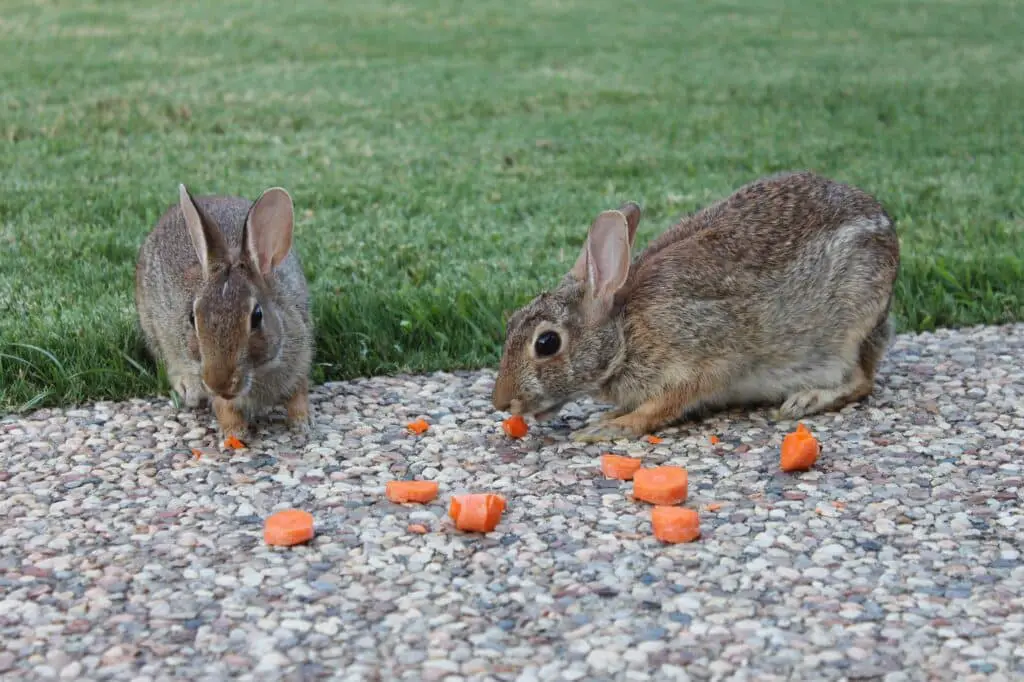
Conclusion
Rabbits in the wild have a diverse diet that consists mainly of grasses, leaves, and twigs. They are herbivores and rely on their sharp teeth and strong jaws to chew and digest plant material. Rabbits also consume a variety of other foods such as fruits, vegetables, and even tree bark when necessary. Their diet is essential for their survival and provides them with the necessary nutrients to maintain their health and energy levels.
One of the main reasons why rabbits eat such a wide range of foods in the wild is because they need to meet their nutritional requirements. Different plants contain different nutrients, and by consuming a variety of foods, rabbits can ensure that they are getting all the essential vitamins, minerals, and fiber they need. This diverse diet also helps them adapt to changes in their environment and ensures that they can find food even when certain plants are not available.
Furthermore, the diet of wild rabbits is also influenced by their natural instincts and behaviors. For example, rabbits have a natural inclination to graze on grasses, as it helps wear down their continuously growing teeth. They also have a preference for fresh, young plants, as they are more tender and easier to digest. Additionally, rabbits are known to eat their own feces, a behavior known as coprophagy, which allows them to extract additional nutrients from their food and maximize their nutrient intake.
The diet of rabbits in the wild is diverse and includes grasses, leaves, twigs, fruits, vegetables, and even tree bark. This varied diet ensures that rabbits can meet their nutritional requirements, adapt to changes in their environment, and maintain their health and energy levels. Understanding what rabbits eat in the wild is important for those who keep rabbits as pets, as it can help provide them with a balanced and nutritious diet that mimics their natural feeding habits.

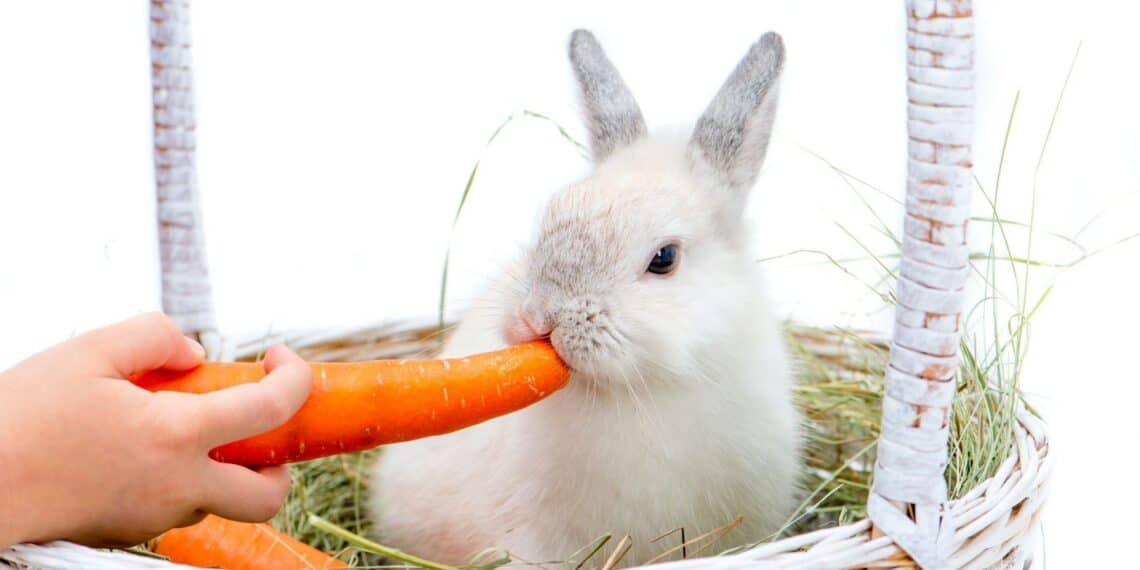
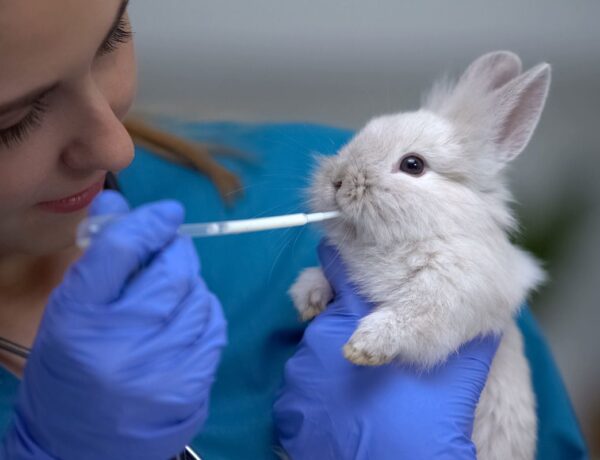
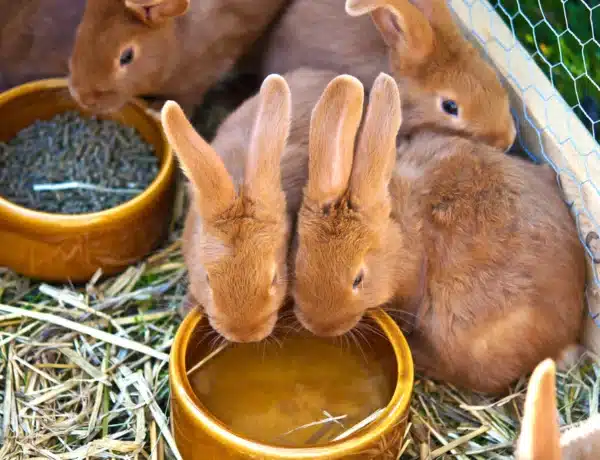
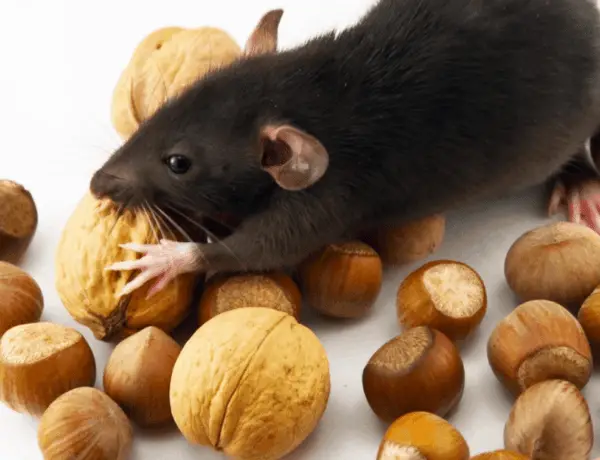
No Comments